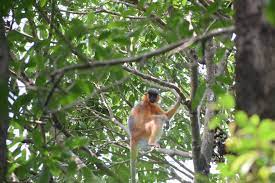Rubber Plantation : Impact On Non-Human Primate Species And Vegetation

A recent study said that turning the tropical forests into natural rubber plantations in Tripura is negatively impacting non-human primate species and vegetation in the region.
- The report highlighted that culturing natural rubber in the last century has brought significant economic benefits for growers.
- But excessive rubber plantations are adversely affecting various wildlife and plant species
- Natural rubber is a polymer made up of a chemical molecule called isoprene.
- Rubber trees require moist and humid climates with heavy rainfall of more than 200 cm.
- It grows well in equatorial climates and temperatures above 25 degrees Celsius.
- Rubber trees require well-drained, weathered soils.
- India is the world’s largest producer and the third-largest user of natural rubber.




